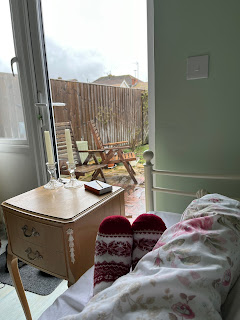Pacing means I crash less often than I used to. But various things beyond my control will always give me a crash - from hormones to hot weather, to an emergency meaning I have to push through (or rather, push deeper into) symptoms. So will doing things that I decide will be worth the days (or weeks) of recovery. So crashes/flare ups/zombie attacks are still very much a routine part of my life.
But something that has made a huge difference is working to see each crash, not as a failure, but as familiar territory that I know how to navigate. I have been here before, I have a pretty good idea what I need to do to recover, I have the skills to get through it.It becomes...a softer, gentler experience. No blame. No guilt. Especially if I've been able to see it in advance - to recognise that yes, the expected consequence of the next few days will be a crash. And then I can create a cushion of realistic expectations. A place where emotionally, mentally and physically, it is safe for me to have my crash.
 |
I mean, my brain might tell me I failed and *should* have done better, but I've learned not to believe it. To respond with "In other words, I'm overwhelmed/burnt out/crashed and need a break/need time to recharge, and I know how to do that."
I'm not saying it's nice. But being able to 'actively accept' these times has made life better. Accepting that right now I'm in a crash/flare up/whatever so my capacity is massively reduced - and actively making choices that will help me recover.
Comments
Post a Comment
Feel free to comment, but please note that any offensive or inappropriate comments - including advertising - will be moderated.